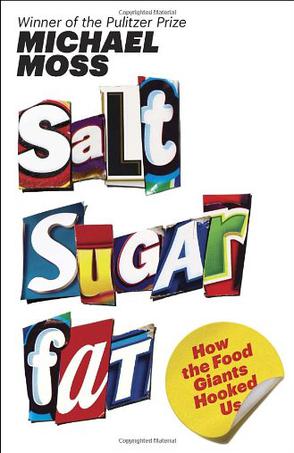
After marketing the soda throughout North and South America, Dunn realizes the harm caused by sugar. Jeffrey Dunn had a senior position at Coca-Cola. Then the ingredient became a public health concern, and dentists pushed for regulation. Post, invented Grape-Nuts.Ĭereal companies outdid each other in sales by adding sugar. John and Will Kellogg started a health retreat, limiting foods deemed unhealthy. However, convenience food won in the market. Government workers continued to promote traditional cooking. As women entered the workforce, convenience became a consideration as important as flavor and cost. Sugar adds flavor, texture, and shelf life. He, and many other food scientists, make products that other people like, but that they themselves do not.įood scientists and marketers at General Foods invented convenience foods in the wake of World War II. Moss and Moskowitz eat at a diner, where the latter finds Dr Pepper disgusting. He applies psychology and statistics to produce popular products. They apply this knowledge to make foods more appealing.ĭr Pepper hires Howard Moskowitz to fix its product line. Scientists investigate how the body responds to sugar. Here, scientists demonstrate how to manufacture a soda with the ideal amount of sugar, or “bliss point,” to make people want to drink more. The author visits a soda research laboratory. Moss investigates food poisoning cases, and finds that manufacturers manipulate safety procedures, making food less safe. Pillsbury executive James Behnke has concerns over the health effects of his industry’s products. In the first part of the book, Moss visits the research, production, and marketing divisions of sugary food producers.

The executives decide to continue selling these products to grow their businesses, regardless of health consequences. In secret meetings, food industry executives discuss the problem of their reliance on salt, sugar, and fat contributing to obesity. Government also faults the food industry. Obesity from overeating could explain the epidemic of major diseases, and their ensuing social and economic costs.

Growing obesity rates over recent decades have resulted in shocking statistics, with millions of consumers looking to blame someone for their health outcomes. The food industry could face legal and political consequences comparable to those faced by tobacco companies. Manufacturers then advertise these products to consumers, including children, much like the advertising of tobacco. The key ingredients in most processed foods are salt, sugar, and fat. Through industrial processes, food companies remove nutritious components and substitute cheaper, harmful ingredients.


 0 kommentar(er)
0 kommentar(er)
